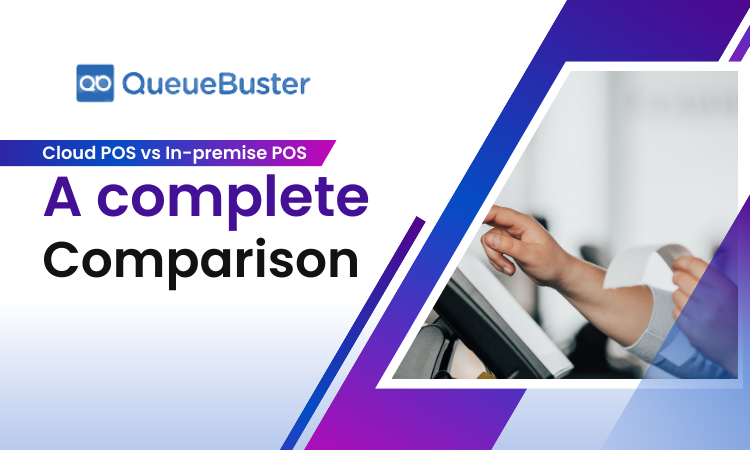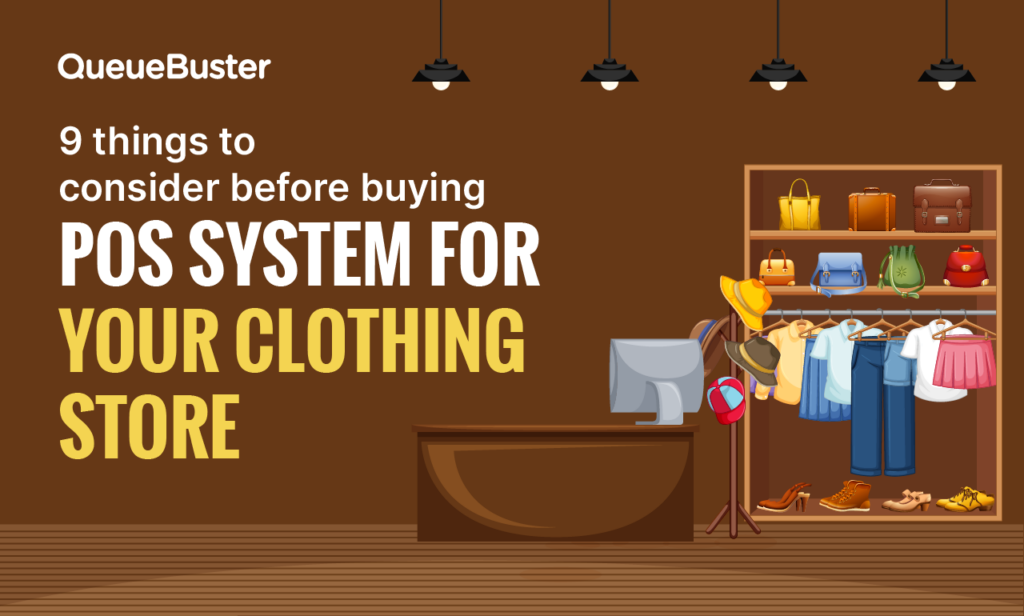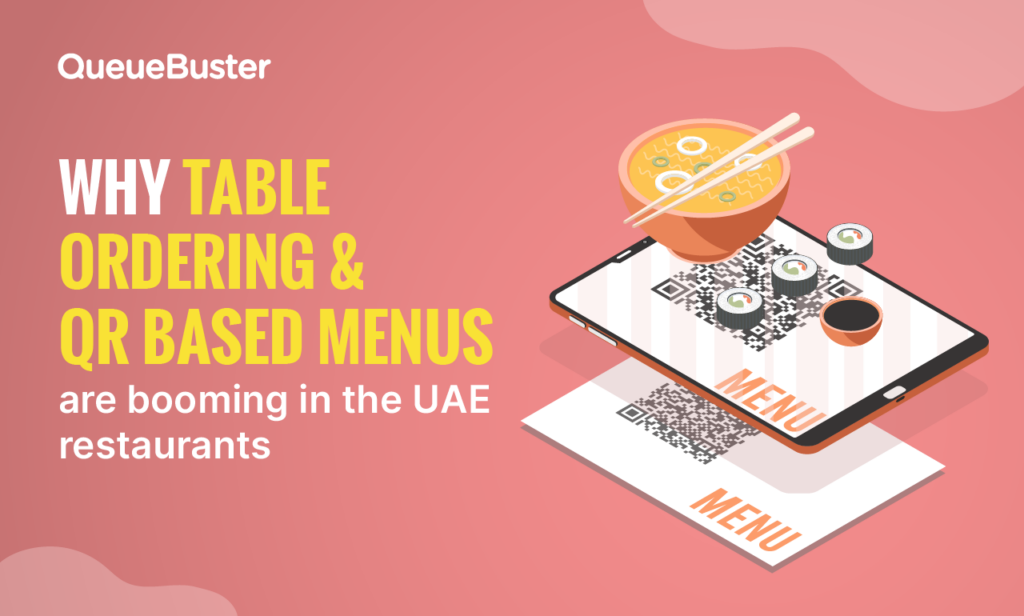
Cloud POS vs In-premise POS: A complete comparison
Cloud POS vs In-premise POS: A complete comparison

By QueueBuster Team Published: February 9th, 2024
If you are into the retail business, you will know how important it is to acquire a POS system. It can help you streamline all your operations such as accepting payments, creating invoices, managing inventory, and maintaining transactions.
There are two types of POS systems you need to be aware of: Cloud POS solutions and In-Premise POS. Each of these has its own set of pros and cons. Understanding these in detail can help you decide on the right solution that will work for you.
What is in-premise POS?
In-premise or traditional Pos is a system where all your data will be stored on a local database, such as the hard drive of your computer. You will be able to access it only by using your computer.
Pros and cons of in-premise Pos
Pros:
Here are a few benefits of using In-premise Pos for your retail business:
- No need for the Internet: The best part about using an In-premise POS is that you don’t have to be connected. You can capture data through the device that is already installed in the POS system. Anytime you need to access the data all that you need to do is switch on the in-premise Pos system.
- One-time payment: Unlike cloud POS software, in-premise POS requires you to make just a single one-time payment to purchase the device. Once you have made this payment, the device becomes your asset.
- Customized features and functionalities: In-premise Pos would be a device that is specially designed for your business. Therefore, you will be able to get all the features and functionalities customized as per your requirements.
Cons:
While there are many benefits of using an in-premise Pos, it also has certain limitations:
- Expensive Investment: To install an in-premise POS there is certain hardware you will have to purchase. The cost of this hardware can be quite high, depending on the type of device you are going for. However, in the long run, this investment might still seem worthwhile.
- No Mobile Optimisation: Since all the data would be stored locally in an in-premise POS, you won’t be able to access your data from anywhere. You will have to switch on the terminal to view your transactions.
What is cloud Pos software?
A Cloud pos software is a solution where all your data will be stored on an online server. It works on all devices and can be accessed from anywhere at any time, provided you have internet access. You will be given a license to use the software on a subscription basis.
Pros and cons of Cloud Pos Billing Software
Pros:
There are many benefits that a Cloud Pos Billing app can offer to small and medium-sized businesses. They include:
- Remote access: The best part of using a Cloud Pos App is that you will be able to access your data at any time and from any part of the world.
- Cost efficiency: Compared to in-premise Pos, Cloud Pos is a cost-efficient alternative since you won’t have to invest in any expensive hardware. If you are using Cloud Pos Billing software like QueueBuster, you won’t even have to invest in any extra software since it comes with so many useful features and functionalities.
- Business insights: With a Clous Pos Billing app such as QueueBuster, you will be able to track your sales, order histories or stock position and generate real-time reports from any time anywhere. All this data can be very useful in making informed decisions to improve business.
- Data security: Since all of your data would be stored on the cloud, all your transactions will be automatically backed up in case of a Cloud Pos. So even if your device is broken or lost, you won’t have to worry about losing your data.
- Scalability: Unlike In-premise Pos, Cloud Pos is easily scalable whenever the needs and size of businesses increase. Since you will be renewing your subscription regularly, you can always choose a higher plan with extra features or multiple-user access.
- Real-time sync: The real-time synchronization feature of Cloud Pos Software applications can be very useful for retailers who use multiple sales channels. This feature will sync all your transaction data, both from your brick-and-mortar stores as well as online channels, and update them automatically in real time.
Error: Contact form not found.
Cons:
Cloud Pos Solution can be beneficial for any retail business to streamline its operations affordably. However, there are a few drawbacks to this too:
- Too much dependence on the internet: A stable and high-speed internet connection is a must for a Cloud Pos app to run efficiently. You may face disruptions while using the app if the internet connection is unstable. That said, there are a few such apps with offline support too.
- Standard features without customization: Unless you get an exclusive Cloud Pos Software made for your business you will have to make do with the fixed features offered by your supplier. However, there are a few providers who offer customization options too.
Comparison of cloud POS vs in-premise POS
Choosing between In-premise Pos and Cloud Pos is one decision that is entirely up to you. Nevertheless, here are a few things you need to check out, before making your decision:
- Features: The features of In-premise Pos will differ from Cloud Pos. Find out what you need to run your store operations efficiently and make sure the option that you choose has all of them. If you need any customizations talk to the provider.
- Deployment: In-premise Pos can be installed only on the servers and computers that are located physically on the premises. However, the cloud Pos can be accessed through any browser and the data will be stored on the vendor’s server.
- Pricing: In-premise POS can be more expensive than Cloud POS. However, you will make only a one-time payment here, to buy the required infrastructure. Cloud Pos comes with a low monthly subscription or annual subscription that you can keep paying till you want it.
- Data security: In-premise POS stores all your data in your computer’s hard drive while Cloud Pos stores it all on the cloud. However, in case of any emergency like a house fire or data breach, you may lose all your data from your computer. Most Cloud Pos software suppliers take measures to protect your data from external access. If this is the case, you won’t have to worry about the security of your data. Your data will always be backed up on the vendor’s server.
- Accessibility: If you are always on the go, Cloud Pos might seem more accessible to you, since you will be able to access your data from anywhere and at any time. In-premise Pos requires you to be physically present at the terminal where the data is stored.
Conclusion
In-premise Pos may be suitable for some businesses that require their own customized Pos system without the use of the Internet. However, the increasing use of mobile devices and easy internet accessibility has made Cloud Pos solution preferable for most retail businesses. Whatever you choose, make sure you explore your options and decide on the best option that gives you great value for money.
Error: Contact form not found.
QueueBuster is an excellent choice when it comes to Cloud Pos Billing Software. It comes with top-notch features and functionalities well-suited for many retail businesses such as restaurants, grocery stores, spas & salons, and other retail stores.
Request a demo to find out how you can use QB to streamline your operations.
Popular Posts

9 Things to Consider Before Buying a POS System for Your Clothing Store
Running a clothing store is about much more than billing. From managing […]

Why Table Ordering and QR-Based Menus Are Booming in UAE Restaurants
The UAE restaurant industry is evolving faster than ever. From luxury fine […]